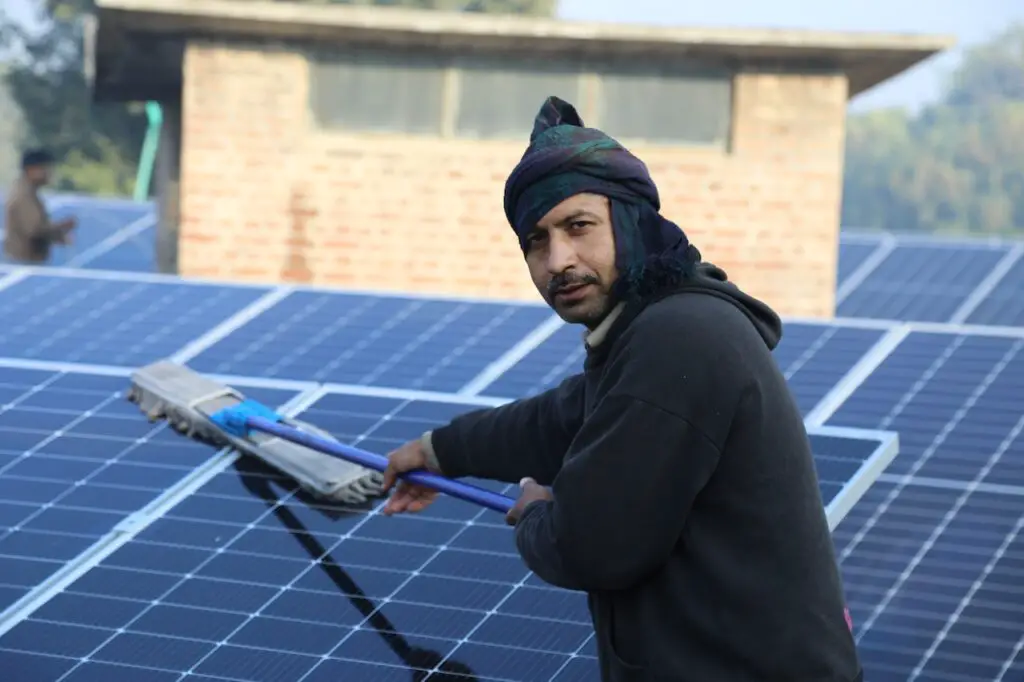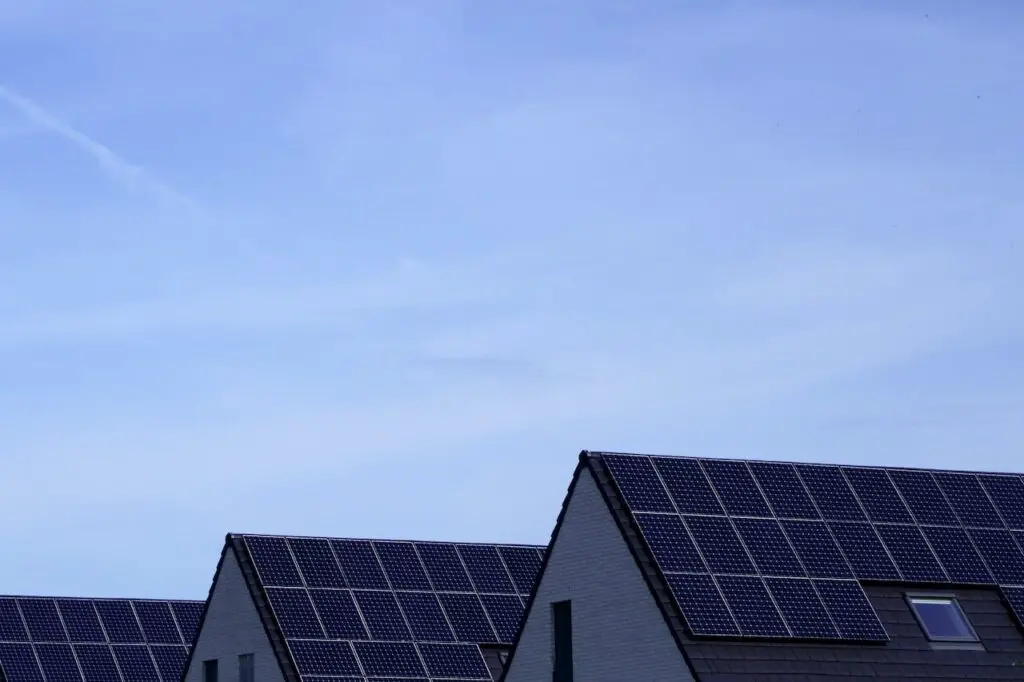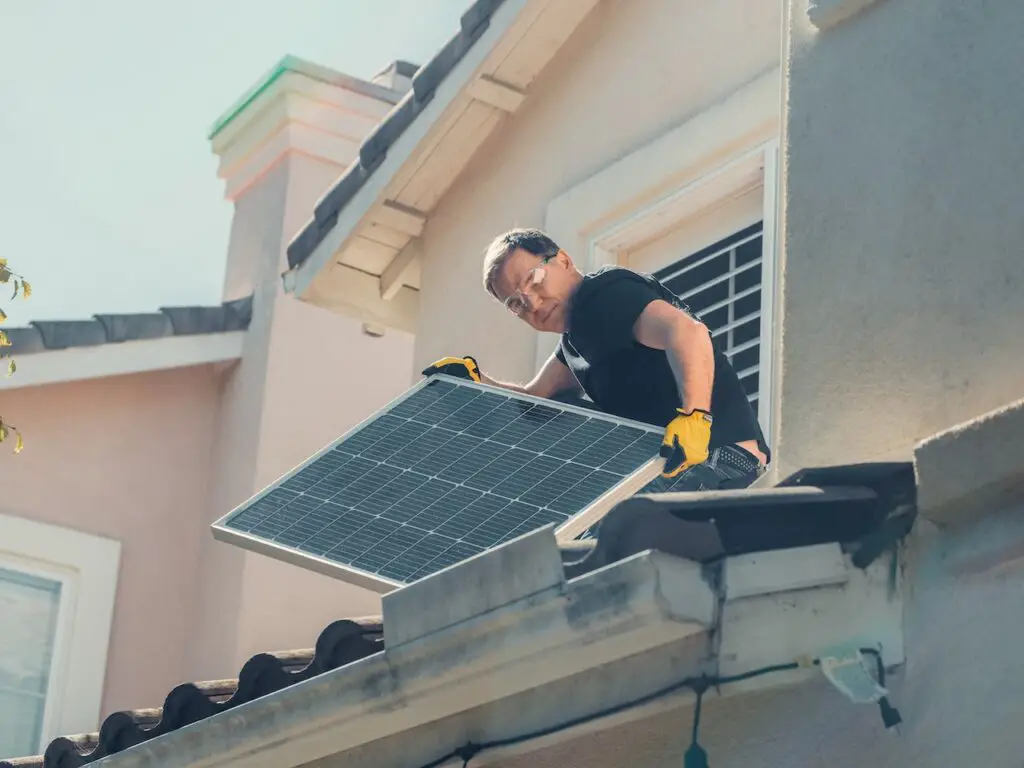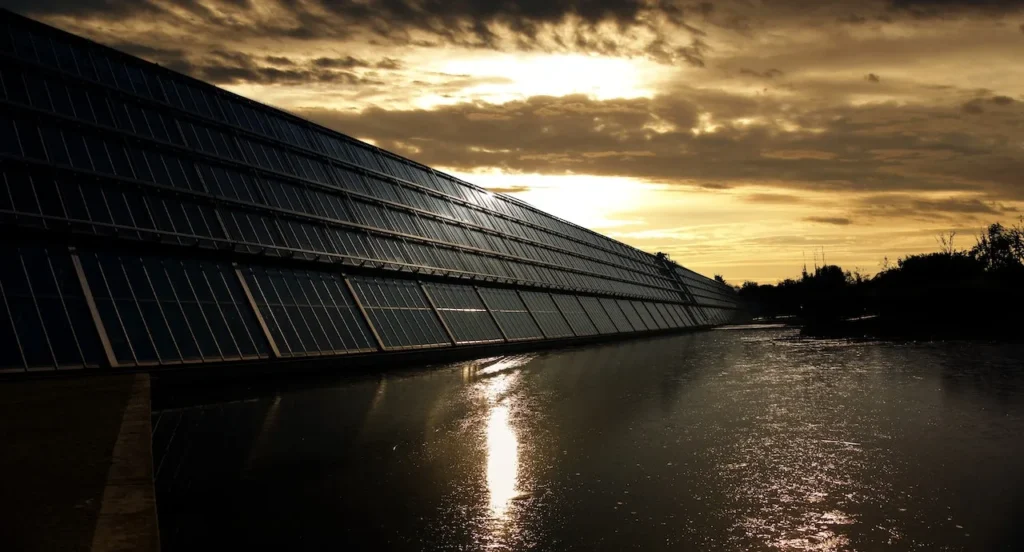Are you tired of working a job that doesn’t align with your values? Do you want to make a positive impact on the world while earning a living? If so, a career in renewable energy might be the perfect fit for you.
Not only are these jobs in high demand, but they also offer the satisfaction of knowing that you’re contributing to a more sustainable future. In this post, we’ll explore five renewable energy jobs that will make you feel good about going to work.
Whether you’re interested in solar, wind, or hydro power, there’s a job out there for you that can help you make a difference. So let’s dive in and discover what these exciting careers have to offer!

Overview of the Jobs
Each of these jobs plays a critical role in the renewable energy industry, and they offer a range of opportunities for people with different skills and interests. Here are the five jobs we’ll be discussing:
- Solar Panel Installer: As the demand for solar energy continues to grow, so does the need for skilled professionals who can install and maintain solar panels. This job involves working outdoors, climbing ladders, and using power tools to install and connect solar panels to homes and businesses.
- Wind Turbine Technician: Wind energy is one of the fastest-growing sources of renewable energy, and wind turbine technicians are in high demand. This job involves climbing wind turbines to perform maintenance and repairs, as well as troubleshooting and problem-solving to keep the turbines running smoothly.
- Hydroelectric Plant Operator: Hydroelectric power is a reliable and renewable source of energy, and hydroelectric plant operators play a critical role in keeping the power flowing. This job involves monitoring and controlling the flow of water through turbines to generate electricity, as well as performing maintenance and repairs on the equipment.
- Energy Efficiency Consultant: As more businesses and homeowners seek ways to reduce their energy consumption, the demand for energy efficiency consultants is on the rise. This job involves assessing energy usage and recommending ways to reduce waste, such as upgrading to more efficient appliances or improving insulation.
- Sustainability Coordinator: Many companies and organizations are making a commitment to sustainability, and sustainability coordinators help them achieve their goals. This job involves developing and implementing sustainability initiatives, such as reducing waste, conserving energy, and promoting environmentally friendly practices.
Solar Panel Installer
Job description and responsibilities
As a Solar Panel Installer, your primary responsibility is to install solar photovoltaic (PV) systems on residential and commercial rooftops. This job involves working as part of a team to complete installations according to company standards and local code. You’ll be responsible for assembling support structures, installing solar panels and modules, and connecting PV systems to electrical systems. You’ll also need to weatherproof outdoor electrical equipment and ensure that the wiring systems are safe and efficient.
Required skills and qualifications
To be a successful Solar Panel Installer, you’ll need a combination of technical and physical skills. You should have a strong understanding of electrical systems and be able to read and interpret schematics and blueprints. You’ll also need to be comfortable working at heights, as this job often involves climbing ladders and working on rooftops. Other important skills include the ability to operate power tools and equipment, attention to detail, and the ability to work as part of a team.
Average salary and job outlook
According to the Bureau of Labor Statistics, the median annual wage for Solar Photovoltaic Installers was $46,470 as of May 2020. The job outlook for Solar Panel Installers is also positive, with a projected growth rate of 51% from 2019 to 2029. This growth is due to the increasing demand for solar energy and the need for skilled professionals to install and maintain solar panels.
Advantages of working in this field
There are several advantages to working as a Solar Panel Installer. First and foremost, you’ll be contributing to a more sustainable future by helping to increase the use of renewable energy. You’ll also have the opportunity to work outdoors and enjoy the satisfaction of seeing a project through from start to finish. Additionally, this field offers good job security and opportunities for advancement as you gain experience and develop new skills. Finally, you’ll be part of a growing industry that is creating new jobs and driving innovation in the energy sector.
Wind Turbine Technician
Job description and responsibilities
As a Wind Turbine Technician, your primary responsibility is to maintain and repair wind turbines used to generate electricity. This job involves working at heights of up to 300 feet to inspect, troubleshoot, and repair wind turbines. You’ll be responsible for performing preventative maintenance, such as oil changes and component replacements, as well as diagnosing and repairing electrical and mechanical problems. You’ll also need to document all work performed and ensure that all safety procedures are followed.
Required skills and qualifications
To be a successful Wind Turbine Technician, you’ll need a combination of technical and physical skills. You should have a strong understanding of electrical and mechanical systems and be able to troubleshoot and diagnose problems quickly and accurately. You’ll also need to be comfortable working at heights and in all types of weather conditions. Other important skills include the ability to work independently, attention to detail, and the ability to communicate effectively with team members and customers.
Average salary and job outlook
According to the Bureau of Labor Statistics, the median annual wage for Wind Turbine Technicians was $56,230 as of May 2020. The job outlook for Wind Turbine Technicians is also positive, with a projected growth rate of 61% from 2019 to 2029. This growth is due to the increasing demand for wind energy and the need for skilled professionals to install and maintain wind turbines.
Advantages of working in this field
There are several advantages to working as a Wind Turbine Technician. First and foremost, you’ll be contributing to a more sustainable future by helping to increase the use of renewable energy. You’ll also have the opportunity to work outdoors and enjoy the satisfaction of seeing a project through from start to finish. Additionally, this field offers good job security and opportunities for advancement as you gain experience and develop new skills. Finally, you’ll be part of a growing industry that is creating new jobs and driving innovation in the energy sector.
Hydroelectric Plant Operator
Job description and responsibilities
As a Hydroelectric Plant Operator, your primary responsibility is to operate and maintain hydroelectric power plants that generate electricity from flowing water. This job involves monitoring and controlling the flow of water through turbines to generate electricity, as well as performing maintenance and repairs on the equipment. You’ll need to use computerized systems to monitor plant operations, troubleshoot problems, and make adjustments to ensure optimal performance. You’ll also need to maintain accurate records and communicate with other operators and maintenance personnel to ensure that the plant is running smoothly.
Required skills and qualifications
To be a successful Hydroelectric Plant Operator, you’ll need a combination of technical and analytical skills. You should have a strong understanding of electrical and mechanical systems and be able to troubleshoot and diagnose problems quickly and accurately. You’ll also need to be comfortable working with computerized control systems and have excellent analytical and problem-solving skills. Other important skills include attention to detail, the ability to work independently, and the ability to communicate effectively with team members and customers.
Average salary and job outlook
According to the Bureau of Labor Statistics, the median annual wage for Power Plant Operators, Distributors, and Dispatchers (which includes Hydroelectric Plant Operators) was $85,950 as of May 2020. The job outlook for Hydroelectric Plant Operators is also positive, with a projected growth rate of 1% from 2019 to 2029.
Advantages of working in this field
There are several advantages to working as a Hydroelectric Plant Operator. First and foremost, you’ll be contributing to a more sustainable future by helping to increase the use of renewable energy. You’ll also have the opportunity to work in a high-tech environment and use advanced computerized systems to monitor and control plant operations. Additionally, this field offers good job security and opportunities for advancement as you gain experience and develop new skills. Finally, you’ll be part of a growing industry that is creating new jobs and driving innovation in the energy sector.
Energy Efficiency Consultant
Job description and responsibilities
As an Energy Efficiency Consultant, your primary responsibility is to help businesses and homeowners reduce their energy consumption and save money on utility bills. This job involves assessing energy usage and recommending ways to reduce waste, such as upgrading to more efficient appliances or improving insulation. You’ll need to conduct energy audits, analyze data, and develop reports that outline potential savings and return on investment. You’ll also need to communicate your findings and recommendations to clients and work with them to implement energy-saving measures.
Required skills and qualifications
To be a successful Energy Efficiency Consultant, you’ll need a combination of technical and analytical skills. You should have a strong understanding of energy systems and be able to analyze data to identify areas of waste and inefficiency. You’ll also need to have excellent communication skills and be able to explain complex concepts in simple terms. Other important skills include attention to detail, the ability to work independently, and the ability to manage multiple projects simultaneously.
Average salary and job outlook
According to ZipRecruiter, the average annual salary for an Energy Efficiency Consultant is $72,000 as of 2021. The job outlook for Energy Efficiency Consultants is also positive, with a projected growth rate of 8% from 2019 to 2029.
Advantages of working in this field
There are several advantages to working as an Energy Efficiency Consultant. First and foremost, you’ll be contributing to a more sustainable future by helping businesses and homeowners reduce their carbon footprint. You’ll also have the opportunity to work in a variety of settings, from commercial buildings to residential homes. Additionally, this field offers good job security and opportunities for advancement as you gain experience and develop new skills. Finally, you’ll be part of a growing industry that is creating new jobs and driving innovation in the energy sector.
Sustainability Coordinator
Job description and responsibilities
As a Sustainability Coordinator, your primary responsibility is to develop and implement sustainability initiatives that reduce the environmental impact of a company or organization. This job involves working with stakeholders at all levels, from executives to employees, to identify opportunities for reducing waste, conserving energy, and promoting environmentally friendly practices. You’ll need to conduct sustainability assessments, develop sustainability plans, and track progress toward sustainability goals. You’ll also need to communicate your findings and recommendations to stakeholders and work with them to implement sustainability initiatives.
Required skills and qualifications
To be a successful Sustainability Coordinator, you’ll need a combination of technical and interpersonal skills. You should have a strong understanding of environmental systems and be able to analyze data to identify opportunities for improvement. You’ll also need to have excellent communication and collaboration skills and be able to work effectively with stakeholders at all levels. Other important skills include project management, problem-solving, and the ability to work independently.
Average salary and job outlook
According to ZipRecruiter, the average annual salary for a Sustainability Coordinator is $68,000 as of 2021. The job outlook for Sustainability Coordinators is also positive, with a projected growth rate of 8% from 2019 to 2029.
Advantages of working in this field
There are several advantages to working as a Sustainability Coordinator. First and foremost, you’ll be contributing to a more sustainable future by helping companies and organizations reduce their environmental impact. You’ll also have the opportunity to work in a variety of settings, from corporate offices to non-profit organizations. Additionally, this field offers good job security and opportunities for advancement as you gain experience and develop new skills. Finally, you’ll be part of a growing industry that is creating new jobs and driving innovation in the sustainability sector.
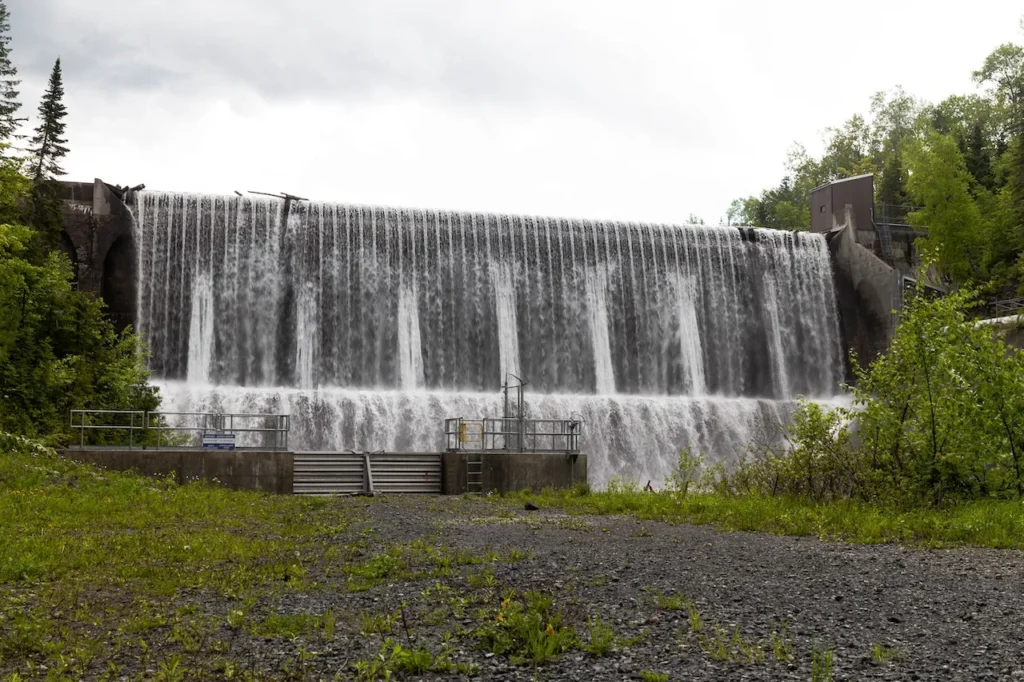
Challenges and drawbacks of renewable energy jobs
While there are many advantages to working in renewable energy, there are also some challenges and drawbacks to consider. One of the biggest challenges is the physical demands of the job. Many renewable energy jobs, such as Wind Turbine Technicians or Solar Panel Installers, require working at heights or in extreme weather conditions, which can be physically demanding and potentially dangerous.
Another challenge is the long hours and irregular schedules that are often required in renewable energy jobs. This can be especially true for jobs that involve maintenance and repair work, which may need to be done outside of regular business hours to minimize disruptions to power generation.
Finally, job instability can also be a challenge in the renewable energy industry. While the industry is growing rapidly, it is still subject to fluctuations in demand and changes in government policies that can impact job security.
To overcome these challenges and mitigate their impact, there are several things you can do.
First, it’s important to maintain a strong focus on safety and follow all recommended safety protocols to minimize the risk of injury or accidents.
Second, it’s important to stay physically fit and maintain good health to be able to handle the physical demands of the job. This may involve regular exercise, a healthy diet, and taking breaks as needed to avoid fatigue.
Third, it’s important to maintain a good work-life balance and prioritize self-care to avoid burnout. This may involve setting boundaries around work hours or taking regular breaks to recharge.
Finally, it’s important to stay up-to-date on industry trends and developments to ensure that you have the skills and knowledge needed to adapt to changes in the industry. This may involve taking continuing education courses or seeking out professional development opportunities. By staying informed and taking care of yourself physically and mentally, you can overcome the challenges and enjoy a rewarding career in renewable energy.
Education and training requirements for renewable energy jobs
The education and training requirements for renewable energy jobs can vary depending on the specific job and industry. Here are some examples of different types of education and training that may be required for five common renewable energy jobs:
- Solar Panel Installer: Many Solar Panel Installers have a high school diploma or equivalent, but some employers may prefer candidates with an associate’s degree in a related field. Certification from organizations such as the North American Board of Certified Energy Practitioners (NABCEP) may also be required.
- Wind Turbine Technician: Wind Turbine Technicians typically have an associate’s degree in a related field, such as wind energy technology or electrical engineering. Some employers may also require certification from organizations such as the American Wind Energy Association (AWEA).
- Energy Efficiency Consultant: Energy Efficiency Consultants typically have a bachelor’s degree in a related field, such as environmental science or engineering. Professional certifications, such as the Certified Energy Manager (CEM) or LEED Accredited Professional (LEED AP), may also be required.
- Sustainability Coordinator: Sustainability Coordinators typically have a bachelor’s degree in environmental science, sustainability, or a related field. Professional certifications, such as the Sustainability Professional (ISSP) or LEED Green Associate, may also be required.
- Hydroelectric Plant Operator: Hydroelectric Plant Operators typically have a high school diploma or equivalent, but some employers may prefer candidates with an associate’s degree in a related field. On-the-job training and certification from organizations such as the National Hydropower Association (NHA) may also be required.
There are many resources available for finding education and training programs in renewable energy. Here are a few examples:
- The Department of Energy’s Office of Energy Efficiency and Renewable Energy (EERE) provides information on training and education programs in renewable energy on their website.
- The North American Board of Certified Energy Practitioners (NABCEP) provides certification programs for Solar Panel Installers and other renewable energy professionals.
- The American Wind Energy Association (AWEA) provides certification programs for Wind Turbine Technicians and other wind energy professionals.
- The Association of Energy Engineers (AEE) offers a variety of professional certifications and training programs for energy efficiency professionals.
- The International Society of Sustainability Professionals (ISSP) provides professional certifications for sustainability professionals.
- Many colleges and universities offer degree programs in renewable energy and sustainability, such as the Renewable Energy Engineering program at Oregon Institute of Technology or the Sustainable Energy and Environmental Management program at University of California, Santa Barbara.
- Apprenticeship programs, such as those offered by the International Brotherhood of Electrical Workers (IBEW), can provide on-the-job training and education for renewable energy jobs.
Emerging trends and developments in renewable energy jobs
Renewable energy is a constantly evolving field, with new technologies, policy changes, and industry growth driving innovation and change. Here are a few of the latest trends and developments in renewable energy:
- Energy Storage: Advances in energy storage technology, such as batteries and pumped hydro storage, are making it possible for renewable energy sources like wind and solar to provide reliable, around-the-clock power.
- Offshore Wind: Offshore wind farms are becoming increasingly common, as advances in technology and policy changes make it easier to install and maintain wind turbines in deep water.
- Electric Vehicles: The growth of the electric vehicle market is driving demand for renewable energy sources to power these vehicles, such as solar-powered charging stations.
- Policy Changes: Governments around the world are implementing policies to encourage the growth of renewable energy, such as tax incentives, renewable energy mandates, and carbon pricing.
- Industry Growth: The renewable energy industry is experiencing rapid growth, with new jobs being created in areas such as solar panel installation, wind turbine maintenance, and energy efficiency consulting.
These trends and developments in renewable energy are likely to have a significant impact on the job market for renewable energy careers. As energy storage technology improves, there may be increased demand for professionals who can design and install energy storage systems. The growth of offshore wind farms may create new opportunities for wind turbine technicians and other professionals who can work in this challenging environment. The growth of the electric vehicle market may drive demand for professionals who can design and install solar-powered charging stations.
Policy changes and industry growth are likely to have the most significant impact on the job market for renewable energy careers. As governments around the world implement policies to encourage the growth of renewable energy, there may be increased demand for professionals who can help companies and organizations meet renewable energy mandates or take advantage of tax incentives. The rapid growth of the renewable energy industry is also likely to create new job opportunities across the board, from entry-level positions to high-level management roles.
In summary, the latest trends and developments in renewable energy are likely to create new job opportunities and drive demand for professionals with the skills and knowledge needed to succeed in this exciting and growing field. As renewable energy becomes more integrated into our energy systems, it will be increasingly important for professionals to stay up-to-date on the latest technologies and policy changes in order to remain competitive in the job market. In addition, professionals who can adapt to new technologies and work in challenging environments, such as offshore wind farms, will be in high demand.
Overall, the future of the renewable energy job market looks bright, with new opportunities emerging every day. Whether you are just starting your career or are looking to make a career change, there are many exciting and rewarding opportunities available in renewable energy. By staying informed and keeping up with the latest trends and developments, you can position yourself for success in this dynamic and rapidly evolving field.

